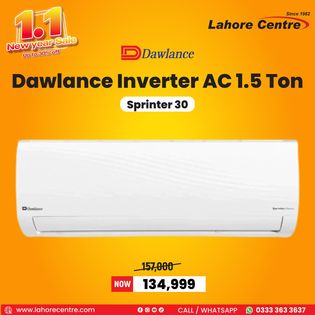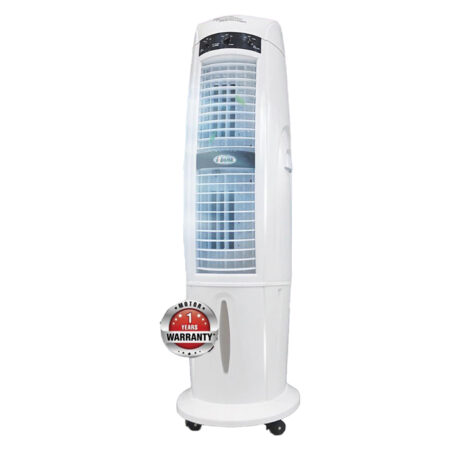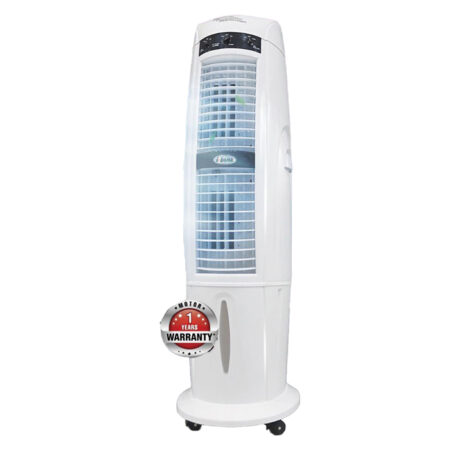During summer or any other non-cold season, there is a need for artificial air to create a sense of coolness in the environment. Although an electronic fan is most economical in this case for otherwise good purposes, a cooler or air conditioner is also a suitable option.
An air conditioner circulates the interior air of a room multiple times while an air cooler pulls in fresh air from outside and cools it. Air coolers do not over-dry the air like air conditioners do. Air coolers provide better air quality to the room compared to air conditioners.
Coolers are the cheapest and best way to cool down in the summer. Larger sized coolers with amazing siphons and fans commonly used in rural areas or towns are even more powerful in the summer. It requires less maintenance and electricity compared to AC.
The cooler provides cold air at regular intervals. Therefore, it is equally useful for happiness. You feel better in a cooler place. An AC or air conditioner is the most expensive way to cool down during the summer. It requires more power and maintenance than a cooler. Because air conditioners produce false air, they are equally harmful to people, pets, and houseplants. In air conditioning, fatigue may set in, and dependence on it can happen seamlessly without any issue. Alternating current also contributes to ozone depletion and other pollution.
Explore and buy the best cheap air coolers and water coolers in easy installments options to make your summers more comfortable and budget-friendly.

Air Cooler vs. Air Conditioner Summary
| Air Cooler | Air Conditioner | |
| Function | Work best in places with dry heat | Can work for cooling, heating, filtration, and dehumidifying. |
| Price | More affordable | More expensive |
| Power Consumption | Less energy consumption | More energy consumption compared to an air cooler |
| Comfort | May not be as comfortable during hotter and humid days | Provides quick and efficient cooling comfort |
| Environment Impact | More eco-friendly than an air conditioner | Emits chlorofluorocarbons, which are harmful to the environment |
| Ease of Use | May or may not include a remote control, depending on the brand | Can operate with a remote control or a smart application |
| Maintenance | Requires daily water refilling and cleaning | Does not need daily maintenance but requires tune-ups and servicing |
| Maintenance Cost | Less expensive compared to an air conditioner | More expensive to maintain than an air cooler |
What is a cooler?
Also known as an evaporative cooler, the cooling mechanism of a cooler uses hot air and water in a room to emit cool air. This cooling process reduces the temperature of the dry air by vaporizing water, thereby vaporizing the utilized enthalpy. Fans actively move water into the absorbent pads, cooling the air by humidifying it, and then expelling it from the room. The cooler has two important parts, the water siphon and the fan, which is why it consumes less energy.
Coolers best suit dry, warm locations with low air humidity. In areas with high air humidity or humidity, the cooler will fail and not cool the air as expected. If it continues to move the same air, the humidity in the room will increase, as will the temperature of the air brought in from the cooler. Compared to other cooling devices, the cooler is pocket-friendly and has much lower maintenance costs due to modest parts. Introducing them is also simpler and more economical, and they can be introduced without the need for professional help. Coolers can also use ductwork and control airways.
What is air conditioning?
To lower the temperature, an air conditioner or air conditioner uses refrigerant. Therefore, AC can reduce the temperature and humidity of the air regardless of the moisture content present. Air forming means war definition of the center of properties present in the air, its temperature and thickness, thus adding positive conditions to it. AC can also refer to any type of innovative cooling, heating, ventilation or disinfection conditioning of the air. No matter where people live and no matter the humidity or humidity in the air, air conditioners work in every situation.
A simple refrigeration cycle typically achieves cooling, but sometimes we can use evaporation. Willis Haviland Carrier conceived the current major form of air conditioning in 1911. AC became popular in the 1920s. Forced air systems cool the air using loops stacked with refrigerant, which can change states at tolerable low temperatures.
Similarly, forced air systems have air and channels that move air from one point to the next structure. The system takes away warmth from the air and introduces coolness. This happens continuously to maintain the functionality of the cooling frame. An air conditioner has four key components, namely the evaporator, condenser, advance valve and blower.
Key Differences between Cooler and Air Conditioner
- The cooler extracts hot air to cool the air, while an air conditioner is a system designed to change the temperature and viscosity of the air within the space it impacts. It can be cold or hot.
- It costs less to buy the cooler of the unit, but it costs more to buy the AC.
- Coolers are more natural and comfortable, while air conditioners are less environmentally friendly.
- Cooler maintenance is not expensive, but air conditioner maintenance is.
- The cooler, also referred to as an evaporative cooler or wet air cooler, and the air conditioner, known as AC.
Lahore Center presents a convenient solution for beating the heat with a diverse range of cooling appliances. Explore the options, choose the cooling solution that fits your needs, and enjoy the flexibility of easy installments at Lahore Center.


